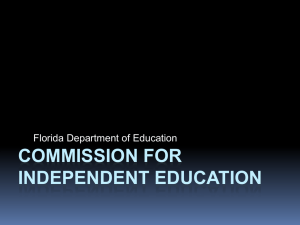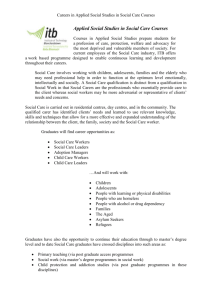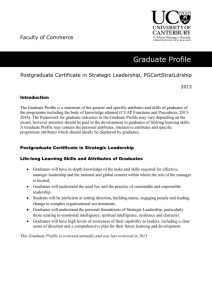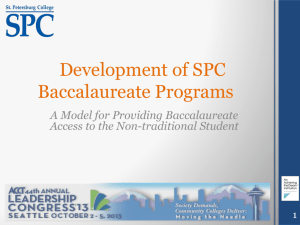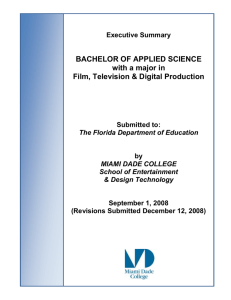Letter of Intent Summary Bachelor of Science with a Major in
advertisement
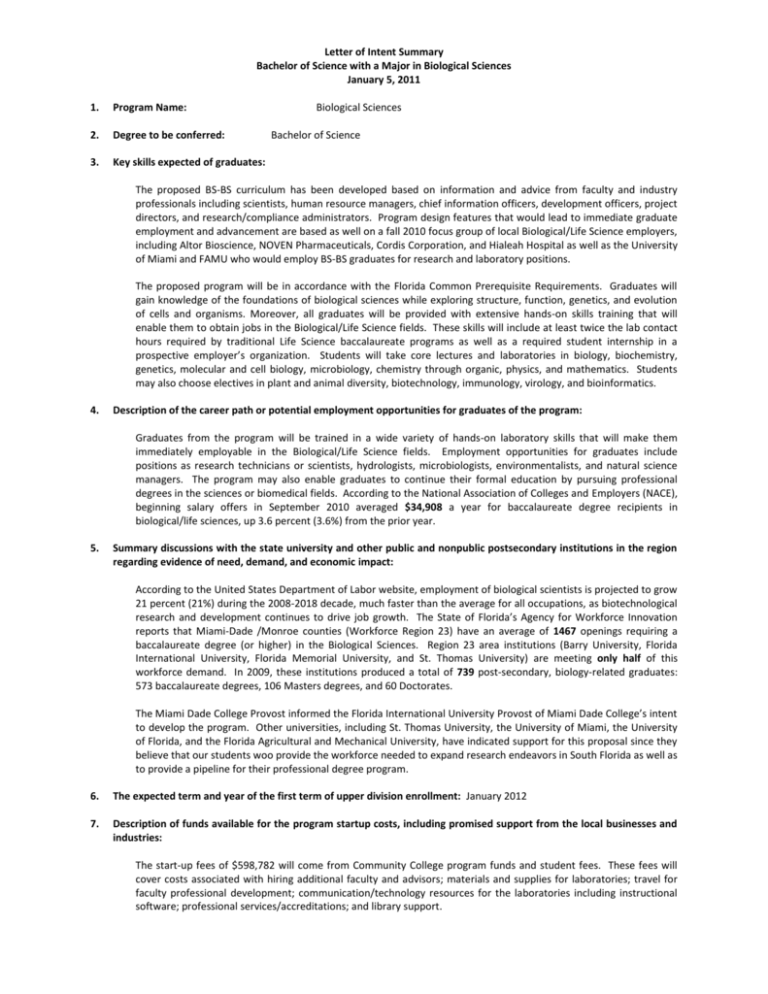
Letter of Intent Summary Bachelor of Science with a Major in Biological Sciences January 5, 2011 1. Program Name: 2. Degree to be conferred: 3. Key skills expected of graduates: Biological Sciences Bachelor of Science The proposed BS-BS curriculum has been developed based on information and advice from faculty and industry professionals including scientists, human resource managers, chief information officers, development officers, project directors, and research/compliance administrators. Program design features that would lead to immediate graduate employment and advancement are based as well on a fall 2010 focus group of local Biological/Life Science employers, including Altor Bioscience, NOVEN Pharmaceuticals, Cordis Corporation, and Hialeah Hospital as well as the University of Miami and FAMU who would employ BS-BS graduates for research and laboratory positions. The proposed program will be in accordance with the Florida Common Prerequisite Requirements. Graduates will gain knowledge of the foundations of biological sciences while exploring structure, function, genetics, and evolution of cells and organisms. Moreover, all graduates will be provided with extensive hands-on skills training that will enable them to obtain jobs in the Biological/Life Science fields. These skills will include at least twice the lab contact hours required by traditional Life Science baccalaureate programs as well as a required student internship in a prospective employer’s organization. Students will take core lectures and laboratories in biology, biochemistry, genetics, molecular and cell biology, microbiology, chemistry through organic, physics, and mathematics. Students may also choose electives in plant and animal diversity, biotechnology, immunology, virology, and bioinformatics. 4. Description of the career path or potential employment opportunities for graduates of the program: Graduates from the program will be trained in a wide variety of hands-on laboratory skills that will make them immediately employable in the Biological/Life Science fields. Employment opportunities for graduates include positions as research technicians or scientists, hydrologists, microbiologists, environmentalists, and natural science managers. The program may also enable graduates to continue their formal education by pursuing professional degrees in the sciences or biomedical fields. According to the National Association of Colleges and Employers (NACE), beginning salary offers in September 2010 averaged $34,908 a year for baccalaureate degree recipients in biological/life sciences, up 3.6 percent (3.6%) from the prior year. 5. Summary discussions with the state university and other public and nonpublic postsecondary institutions in the region regarding evidence of need, demand, and economic impact: According to the United States Department of Labor website, employment of biological scientists is projected to grow 21 percent (21%) during the 2008-2018 decade, much faster than the average for all occupations, as biotechnological research and development continues to drive job growth. The State of Florida’s Agency for Workforce Innovation reports that Miami-Dade /Monroe counties (Workforce Region 23) have an average of 1467 openings requiring a baccalaureate degree (or higher) in the Biological Sciences. Region 23 area institutions (Barry University, Florida International University, Florida Memorial University, and St. Thomas University) are meeting only half of this workforce demand. In 2009, these institutions produced a total of 739 post-secondary, biology-related graduates: 573 baccalaureate degrees, 106 Masters degrees, and 60 Doctorates. The Miami Dade College Provost informed the Florida International University Provost of Miami Dade College’s intent to develop the program. Other universities, including St. Thomas University, the University of Miami, the University of Florida, and the Florida Agricultural and Mechanical University, have indicated support for this proposal since they believe that our students woo provide the workforce needed to expand research endeavors in South Florida as well as to provide a pipeline for their professional degree program. 6. The expected term and year of the first term of upper division enrollment: January 2012 7. Description of funds available for the program startup costs, including promised support from the local businesses and industries: The start-up fees of $598,782 will come from Community College program funds and student fees. These fees will cover costs associated with hiring additional faculty and advisors; materials and supplies for laboratories; travel for faculty professional development; communication/technology resources for the laboratories including instructional software; professional services/accreditations; and library support.

